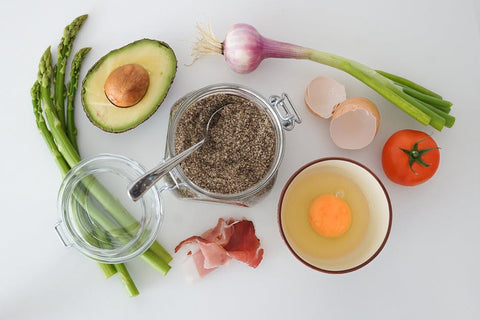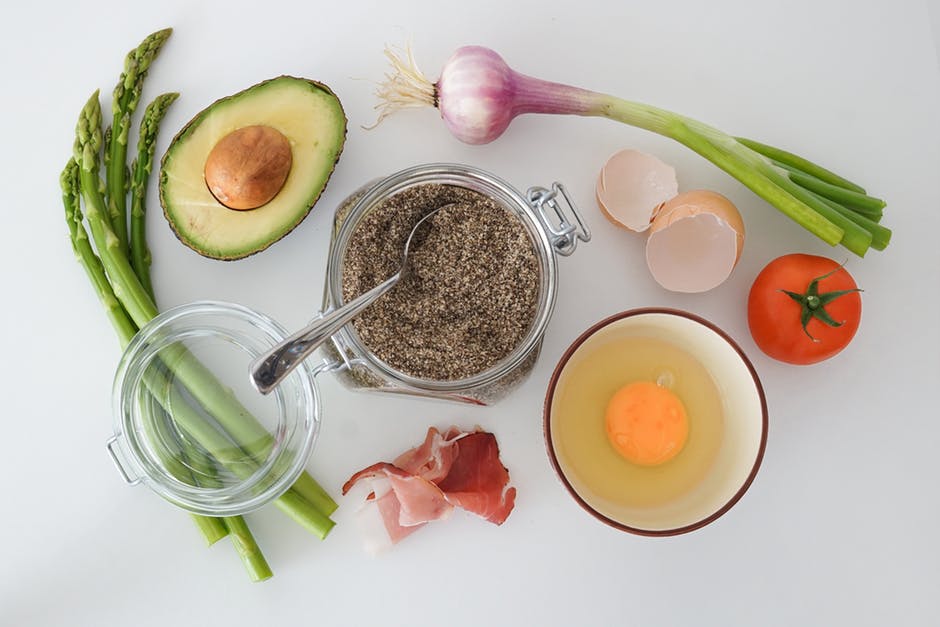
So the first term that needs clarification is that of a ‘whole food’. We have all heard the term and know that it’s good for us. Somehow. But what exactly makes it good for us? And what exactly constitutes a whole food?
Normally, the definition would just mean that it’s a food that’s complete; whole, from the Greek, holon, meaning ‘a single organism.’ This would mean that the organism isn’t broken down; it’s in the most raw state possible. You grab your veggies from the produce section, fresh, rather than getting them canned or frozen. You are taking veggies, tomato sauce, flour, eggs, all the basic items in their most holistic form, then preparing them yourself to make a pizza, rather than buying one pre-made. Even if the pre-made pizza is Organic or All-Natural or any other label trying to make you think it’s healthy, it’s not a whole food when you get it, so your body won’t respond as well to it
While some may be lax with their definition, I urge you to be more precise: this means that something like almond meal, even though it’s simply just almonds ground up, isn’t a whole food because you didn’t get the almond whole and unprocessed. Sure, some things you have to concede this particularity: I don’t have a flour mill, so I won’t try to make my own gluten-free flours. But at least understand that it’s still not a whole food and you should keep it in moderation.
Now that we have an idea what the operational definition of whole food is, we can investigate why it’s better for us. I want you to take a moment and contemplate the teachings of a very smart man: Charles Darwin. Whether or not you agree with his theories, his main point applies very much to why we should ALL eat way more whole foods than we do.
Humans have been on this earth for many thousands of years. We have adapted to changes in food supply, changes in environment and changes in weather. That’s what makes humans so mighty: our adaptability.
Over those thousands of years, our bodies have learned how to stay healthy and how to extract necessary nutrients through the food we were exposed to. In the modern era, scientists started to isolate certain vitamins and nutrients to see how our bodies benefitted from them. This was very good for us because we started to understand how our bodies remained nourished and healthy. The problem is that these same scientists thought that since they could isolate these wonderful vitamins and minerals, they could just inject our bodies with concentrated doses and this would lower the need to eat healthy. We can eat junk and just take some vitamins to balance it out, right? WRONG.
Our bodies don’t see vitamin A as a source of nutrition. It sees herbs and vegetables as the source of nutrition. It’s evolved over the years to see the plants, the WHOLE FOODS, and break it down to get what it needs. It doesn’t know that vitamin A in its purest form can be absorbed beneficially; especially if that vitamin A wasn’t derived from something natural, but synthetically synthesized. This is why most vitamin supplements that you take end up just wasting your money. You don’t feel a difference except for that placebo effect: you feel better because you want to believe it’s helping you feel better. Your body sees most vitamins in their purest form as xenobiotics: foreign substances that it doesn’t recognize because your body wasn’t the one who broke the food down to get that vitamin. It’s like if you were used to buying a potato every day. Then one day, you thought you were buying a potato, but instead you got a sack of potato starch. You wouldn’t know what to do with it because you wouldn’t recognize what it was. No one is inside of your body, directing it with labels and signs to tell it what all these foreign vitamins are. It isn’t trained to break that down.
What does all this mean for you? Well, it means that if you are on vitamin supplements that aren’t whole foods, more than likely you are wasting your time and money. If you are buying pre-cooked, pre-packaged nonsense, then you aren’t providing your body with the nutrients it needs and deserves. Sure, it may take you a little extra time to make dinner, but it’s worth it. Trust me.
A little time out of your day to ensure your health is well worth it. Just think of it this way: is giving yourself diabetes, a heart attack or extreme obesity convenient? Is killing your children slowly with nutrient deprived foods convenient in the long run? Take time to nourish yourself and you will save time in the future going to the doctor, save yourself money by not having medications to take, and save yourself even more time by living longer AND healthier!

